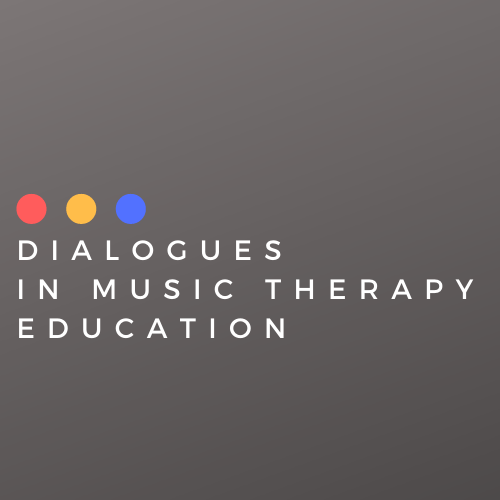Student music stimuli composition in a scaffolded course-based undergraduate research experience
DOI:
https://doi.org/10.18060/24287الكلمات المفتاحية:
course-based undergraduate research experience، research skill development، music and mindfulness، music therapy educationالملخص
Course-based undergraduate research experiences (CURE) allow students opportunities to develop research skills. In a scaffolded CURE, music therapy and music education students composed, evaluated, and selected the music stimuli used in a music and mindfulness study with non-musicians at Site 1 and musicians at Site 2. The purposes of this paper are to (a) describe the process of student music stimuli composition and evaluation for use in a course-based undergraduate research experience and (b) identify benefits, challenges, and lessons learned from the viewpoints of students, graduate assistants, and faculty who participated in the multi-site study. Eight students, two graduate assistants, and two faculty provide an overview of the CURE teaching model and assignments, and share first-person accounts of their experiences participating in this CURE.
المراجع
American Music Therapy Association (2010). Strategic priority on research.
https://www.musictherapy.org/about/musictherapy/.
American Music Therapy Association (2015). Music therapy research 2025:
Proceedings. Silver Springs, MD: American Music Therapy Association.
https://www.musictherapy.org/assets/1/7/MTR2025proceedings.pdf
Auchincloss, L. S., Lauresen, S. L., Branchaw, J. L., Eagan, K., Graham, M.,…Dolan, E.
L. (2014). Assessment of course-based undergraduate research experiences: A
meeting report. CBE-Life Sciences Education, 13, 29-40. doi: 10.1187/cbe.14-01-0004
Author (2019). Publication details omitted to protect the blind review process.
Author (2019b). Publication details omitted to protect the blind review process.
Author et al. (2019). Publication details omitted to protect the blind review process.
Author (2020). Publication details omitted to protect the blind review process.
Author (2020b). Publication details omitted to protect the blind review process.
Author (in review). Publication details omitted to protect the blind review process.
Author (in reviewb). Publication details omitted to protect the blind review process.
Brewer, C. A., & Smith, D. (2011). Vision and change in undergraduate biology education: A call to action. American Association for the Advancement of Science with support from the National Science Foundation. ISBN#: 978-0-87168-741-8.
Brownell, S. E., Hekmat-Scafe, D. S., Singla, V., Chandler Seawell, P. Conklin Imam, J.
F., Eddy, S. L.,…Cyert, M. S. (2015). A high-enrollment course-based undergraduate research experience improves student conceptions of scientific thinking and ability to interpret data. CBE-Life Sciences Education, 14, 1-14.
Carboni, L. W., Wynn, S. R., & McGuire, C. M. (2007). Action research with undergraduate
preservice teachers: Emerging/merging voices. Action in Teacher Education, 29(3), 50-59. 10.1080/01626620.2007.10463460
Chase, A., Clancy, H., Lachance, R., Mathison, B., Chiu, M., & Weaver, G. (2017). Improving
critical thinking via authenticity: the CASPiE research experience in a military academy chemistry course. Chemistry Education Research and Practice, 18(1), 55-63. DOI:10.1039/c6rp00171h
Cuthbert, D., Arunachalam, D., & Lincina, D. (2012). 'It feels more important than other classes
I have done': An 'authentic' undergraduate research experience in sociology. Studies in Higher Education, 37(2), 129-142. DOI:10.1080/03075079.2010.538473
Every Student Succeeds Act (ESSA) (2018). Reauthorization of the Elementary and Secondary
Education Act of 1965 [As Amended Through P.L. 115-224, Enacted July 31, 2018].
Foy, J., Feldman, M., Lin, E., Mahoney, M., & Sjoblom, C. (2006). Neuroscience workshops for
fifth-grade school children by undergraduate students: A university-school partnership. CBE-Life Sciences Education, 5(2), 128-136. DOI:10.1187/cbe.05-08-0107
Kerr, M. A., & Yan, F. (2016). Incorporating course-based undergraduate research experiences
into analytical chemistry laboratory curricula. Journal of Chemical Education, 93(4), 658-662. DOI:10.1021/acs.jchemed.5b00547
Kowalski, J., Hoops, G., & Johnson, R. (2016). Implementation of a collaborative series of
classroom-based undergraduate research experiences spanning chemical biology, biochemistry, and neurobiology. CBE-Life Sciences Education, 15(4), 1-17 DOI:10.1187/cbe.16-02-0089
Kuh, G. D. (2008). High-impact educational practices: What they are, who has access to them,
and why they matter. Washington, DC: Association of American Colleges and Universities.
O'Brien, R., & Roberts, J. A. (2008, Nov/Dec). Teaching the principles of geomicrobiology and
the process of experimental research to undergraduate and first-year graduate students. Journal of College Science Teaching, 38(2), 30-38.
Olimpo, J., Fisher, G., & DeChenne-Peters, S. (2016). Development and evaluation of the
tigriopus course-based undergraduate research experience: Impacts on students' content knowledge, attitudes, and motivation in a majors introductory biology course. CBE-Life Sciences Education, 15(4), 1-15. DOI:10.1187/cbe.15-11-0228
Riley, D. R., Thatcher, C. E., & Workman, E. A. (2006). Developing and applying green
building technology in an indigenous community: An engaged approach to sustainability education. International Journal of Sustainability in Higher Education, 7(2), 142-157. DOI:10.1108/14676370610655922
Russell, J. E., D'Costa, A. R., Runck, C., Barnes, D. W., Barrera, A. L., Hurst-Kennedy,
J.,…Haining, R. (2015). Bridging the undergraduate curriculum using an integrated course-embedded undergraduate research experience (ICURE). CBE-Life Sciences Education, 14(1), 1-10. DOI:10.1187/cbe.14-09-0151
Shaban, K., Abdulwahed, M., & Younes, A. (2015). Problem-centric process for research-based
learning. The International Journal of Engineering Pedagogy, 5(2), 24-30.
Smith, J., Harris, J., Lopez, O., Valverde, L., & Borchert, G. (2015). "On the job" learning: A
bioinformatics course incorporating undergraduates in actual research projects and manuscript submissions. Biochemistry and Molecular Biology Education, 43(3), 154-161. DOI:10.1002/bmb.20848
Wang, J. T. H. (2017). Course-based undergraduate research experiences in molecular
biosciences: Patterns, trends, and faculty support. Federation of European Microbiological Societies Microbiology Letters, 364(15), 1-9. doi:10.1093/femsle/fnx157.
Wiley, E. A., & Stover, N. A. (2014, March). Immediate dissemination of student discoveries to
a model organism database enhances classroom-based research experiences. CBE-Life Sciences Education, 13(1), 131-138. DOI:10.1187/cbe.13-07-0140
Willison, J., O’Regan, K., & Kuhn, S. K. (2018). Researcher skill development framework (US
English Edition). Open Educational Resources, 6. https://commons.und/oers/6.
التنزيلات
منشور
كيفية الاقتباس
إصدار
القسم
الرخصة
الحقوق الفكرية (c) 2020 Abbey L. Dvorak, Eugenia Hernandez-Ruiz, Halle Nick, Ruowen Qi, Celeste Alderete, Zach Frieze, Kirstin Georgeson, Tianna M. Gilliam, Autumn Hatcliff, Alice Kirsch, Jessica Kunst, Raquel Medina, Mitchell Weeks

هذا العمل مرخص بموجب Creative Commons Attribution 4.0 International License.





